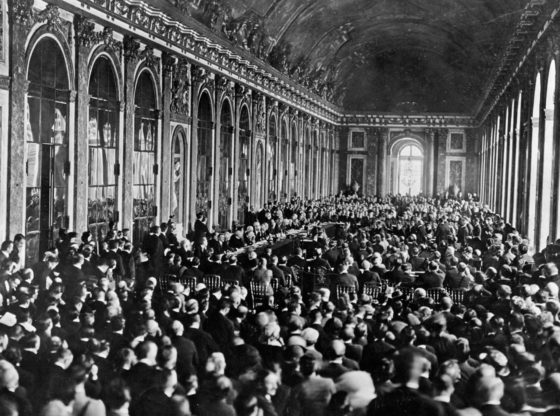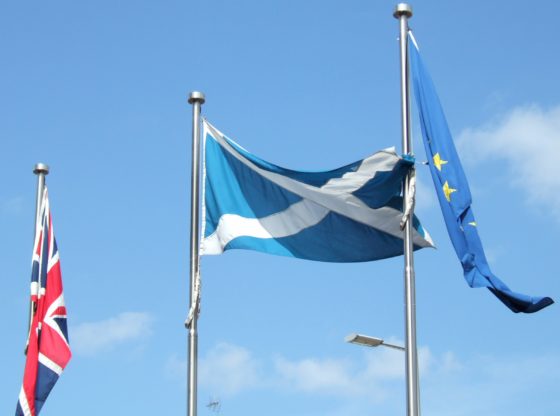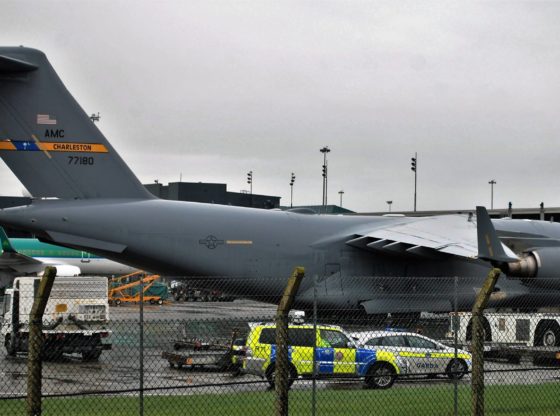In this article, Ewen Levick examines the extent to which the Chinese Communist Party (CCP) has gained influence in Australian politics and society. He argues that the use of money in politics, and surveillance in education, risks eroding Canberra’s independence across a host of policy areas. Does Australia need to do more to protect itself against the long arms of the CCP?
On a balmy October morning in Sydney, a car drove across a steel bridge spanning a narrow channel of sparkling blue water known locally as the Spit. It then peeled off from the rush hour traffic and continued down quiet suburban streets before coming to a stop outside an enormous mansion. The driver stepped out of the car, blinking in the glaring Australian sun, before ringing the doorbell. He was welcomed by Huang Xiangmo, a billionaire with links to the Chinese Communist Party (CCP). The driver quickly raised a finger to his lips. He quietly indicated that Huang should switch off his mobile phone, leave it inside, and follow him away from the house to talk. The government, he explained, was listening.
A few hundred kilometres away, a student journalist for Woroni, a campus newspaper at the Australian National University (ANU), walked into the Canberra Theatre. He was reporting on I Love China 2.0, an event for China’s national day organised by the Chinese student association. The event had attracted some big names the Chinese Ambassador was the keynote speaker, and Australian Prime Minister Malcolm Turnbull had recorded a video message for the audience. Upon taking his seat, however, the student was surrounded by a group of men in black suits. They were not members of the venue’s security staff. Concerned, the student exited the hall and sought refuge in a toilet, but the men followed him inside.
The first event is made remarkable by the fact that the driver of the car was Sam Dastyari - then a sitting Australian senator who has subsequently been forced to resign his position due to his Chinese links. The second is equally remarkable; it represents an open attack on the freedom of speech on an Australian university campus. Together, these two scenes illustrate the means by which the Chinese Communist Party is gaining influence in Australian politics and society, with the aim of undermining Canberra’s policy independence on issues such as the South China Sea. These scenes are also a small part of a much broader pattern in which autocratic states such as China and Russia are attempting to manipulate and undermine Western democracies.

Australia’s response to this pattern of Chinese activity has been to create an unprecedented national security ‘super-ministry’, as well as to undertake the largest overhaul of espionage and political interference laws in decades. Whilst these efforts are laudable, they do not address the many ways in which Beijing is seeking to undermine Australia’s policy independence from within. This article will shed some light on two of these methods – the use of money in politics, and surveillance in education - and argue that more must be done in order to safeguard against the long arms of the CCP.
FOLLOW THE MONEY
The first of Beijing’s long arms is represented by money. China is Australia’s largest export market, its most valuable tourism market, and is a major source of foreign direct investment. China’s government-owned State Grid Corporate owns a significant proportion of Australia’s electricity network. Chinese businesses now own 2.5 percent of Australia’s agricultural land; this represents a tenfold increase on the previous year.
Australia is also the leading destination for Chinese foreign property buyers. These investors, who are often dual Chinese-Australian citizens, are the largest foreign-linked donors to both of Australia’s main political parties. Two billionaire investors in particular have aroused the interest of Australia’s intelligence agencies – Mr Huang Xiangmo and Dr Chau Chak Wing.
Chinese businesses now own 2.5 percent of Australia’s agricultural land; this represents a tenfold increase on the previous year.
It was through his extensive political donations that Mr Huang came to know the former Labor senator Sam Dastyari. Dastyari raised many of Huang’s largest donations to Australia’s Labor Party. The wealthy businessman also paid Dastyari’s personal legal bills, and flew the senator to China on two occasions. In return, Dastyari personally intervened to progress Huang’s application for Australian citizenship, and infamously held a press conference alongside Huang in which the senator echoed Beijing’s policy position on the South China Sea. The subsequent fallout prompted the US Ambassador to Australia to express public surprise and concern about the influence of Chinese money on Australian politics.
Enter Dr Chau Chak Wing, referred to under the codename CC3 by the FBI. Like Huang, Chau has also donated vast sums of money to Australia’s main political parties. He has even hosted two former Prime Ministers, John Howard and Kevin Rudd, at his extensive resort in China’s Guangdong province. Chau once employed Sheri Yan, a Chinese national married to the former Assistant Secretary of the Office of National Assessments, an agency that briefs the Australian Prime Minister on intelligence matters.
A dawn raid in 2015 at Yan’s Canberra apartment, timed to coincide with FBI raids in New York, located classified documents detailing Western knowledge on China’s intelligence agencies. The FBI, and its Australian counterpart ASIO, suspect that Yan may have been working with Chinese intelligence, seeking to gain influence in Australia on behalf of the Chinese Communist Party. She is now in prison, although her employer Dr Chau has not faced any criminal charges.

The exact nature of Huang and Dr Chau’s relationship with the CCP remains unclear. The men apparently dislike each other, but are both known to be associated with the United Front Work Department, a Chinese government body that oversees Beijing’s agents of surveillance and political influence around the world. The United Front occupies an unmarked building on Beijing’s Fuyou Street - a short walk from the office of Chinese President Xi Jinping, who personally chairs the United Front Small Leading Group. Individuals with links to the Front, and to Chinese intelligence, include elected officials in Canada and a Member of Parliament in New Zealand. Chau and Huang’s associations with the Front have prompted one Australian academic to argue that Australia ‘must assume that individuals like [Chau] have really deep, serious connections to the Chinese Communist Party’.
UNDER PRESSURE
The involvement of the United Front is illustrative of the second of Beijing’s long arms - surveillance. Increasing CCP surveillance of Chinese citizens is prominent on Australia’s university campuses. Like many Western countries, Australia hosts large numbers of Chinese students, whose fees account for as much as 16% of university budgets. These students, however, often struggle to adapt to life Down Under. One academic study pessimistically concluded that they occupy a ‘parallel society’ with ‘very few or no Australian friends’, and a sense of belonging “in Australia but not to Australia”.
This social and cultural isolation may be exacerbated by other factors. The United Front, as well as Chinese embassies and consulates, sponsor and regularly communicate with Chinese student unions to ensure the loyalty of their members to the CCP’s policy positions. In fact, the vice president of one Chinese student association has openly stated that he regularly passes information about students to the Chinese consulate.
The vice president of one Chinese student association has openly stated that he regularly passes information about students to the Chinese consulate.
This pressure has resulted in numerous incidents on university campuses around the country. In recent months, a number of Chinese students have protested that some teaching materials are ‘insulting’ to China, prompting apologies from a number of Australian universities and academics. Following one such event, the University of Newcastle engaged in direct discussions with the Chinese embassy. Chinese students have also released online videos, filmed secretly in class, of Australian professors contradicting CCP ideology. This chain of command, from the CCP to consulates to student organisations to students, has made many Chinese students in Australia increasingly afraid of criticising Beijing, out of fear that their fellow students will report them.
Australian universities themselves are not immune to the CCP’s influence; some have been accused of conducting research projects linked to senior Chinese military figures, in contradiction of strict export control laws. In this context, it is interesting to note that Dr Chau once donated $20 million to the University of Technology Sydney to fund the Dr Chau Chak Wing Building.
FALLING SHORT?
This is not to say that Canberra is ignoring the issues of Chinese money and surveillance; nor that its response has been half-hearted. The outright ban on foreign political donations, for example, will go some way towards weakening the influence of Chinese money on Australian politics. The new ‘super-ministry’, modelled on the British Home Office, will create a centre of intelligence coordination and match Australia’s national security architecture with that of the US, the UK, Canada, and New Zealand.
Whilst doubts have been cast on the ability of the ministry to better coordinate the activities of Australia’s intelligence organisations, these doubts ignore the evident problems in the existing system. According to one analyst, the new system ‘promises better policy and operational alignment on complex issues’. The CCP’s use of money and surveillance to gain influence in Australian politics and education is certainly a very complex issue. If left unchecked, it has the potential to erode Canberra’s policy independence on issues such as the militarisation of the South China Sea.
The CCP’s use of money and surveillance to gain influence in Australian politics and education is certainly a very complex issue. If left unchecked, it has the potential to erode Canberra’s policy independence on issues such as the militarisation of the South China Sea.
Nevertheless, there are areas in which Australia’s response to the CCP’s growing influence falls short. The measures taken thus far do not address the contested loyalties of wealthy Chinese-Australian citizens, nor the social isolation of Chinese students in Australia and the increasing surveillance they are under. According to Rory Medcalf, even if Chinese students living in Australia and dual nationals are not receiving specific directions, Beijing’s increasing influence is likely to foster a ‘growing sense of obligation’ to the Chinese Communist Party amongst overseas citizens.
Medcalf’s argument is, of course, difficult to prove. Yet a video interview shown to the audience of I Love China 2.0, whilst the student journalist was sheltering in the toilet, provides some anecdotal evidence of this growing sense of obligation to Beijing. A student at ANU, a dual Chinese-Australian citizen who has resided in Australia since the age of five, was asked by the student union representative whether she considered herself to be more Chinese or more Australian.
Her eyes flickered momentarily off-camera. “More Chinese.”
Ewen Levick is a freelance writer and strategic analyst based in Sydney. His focus is on issues of international security and national strategy. He previously served in the Australian Army. Ewen can be reached at [email protected].
Feature image: Australia’s Prime Minister Tony Abbott and Trade & Investment Minister Andrew Robb signing the China-Australia Free Trade Agreement with President Xi Jinping of China, November 2014. Image: Andrew Robb [CC BY 3.0 AU]











